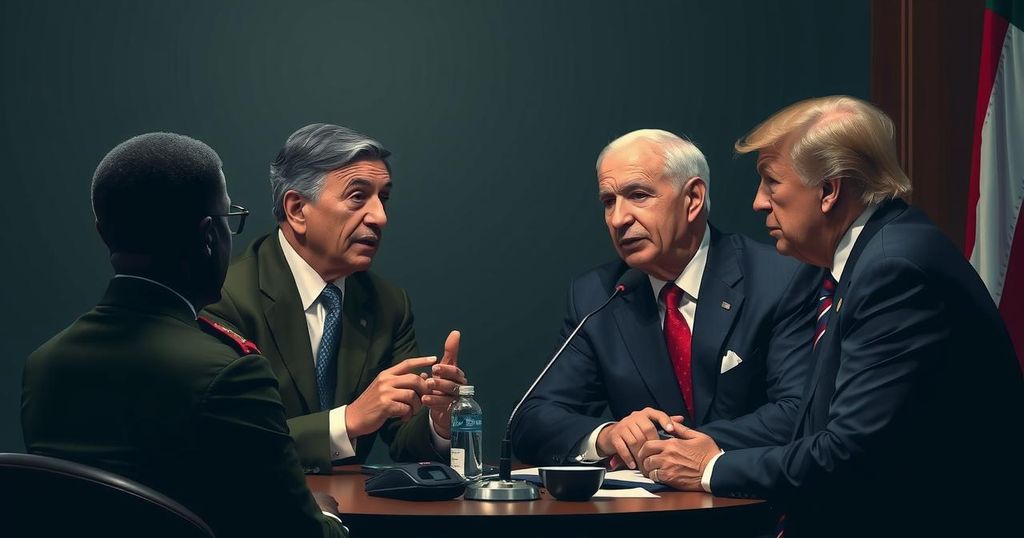Two U.S. lawmakers seek to block a $1.2 billion arms deal with the UAE over allegations of its role in supplying weapons to Sudan’s RSF. They argue for a certification from the Biden administration preventing arms flow to the RSF before the deal proceeds. The context centers around claims of complicity in Sudan’s conflict and emphasizes the need for ethical considerations in arms sales.
In a significant political move, two Democratic lawmakers, Senator Chris Van Hollen and Representative Sara Jacobs, are advocating to impede a proposed $1.2 billion arms transaction with the United Arab Emirates (UAE). Their concern centers on allegations that the UAE has been supplying weapons to Sudan’s paramilitary Rapid Support Forces (RSF), exacerbating the ongoing conflict in Sudan. They emphasize the necessity for the Biden administration to confirm that the UAE is not funneling arms to the RSF prior to the completion of the arms sale.
Senator Van Hollen stated, “The UAE is an important partner, but the United States cannot sit idly by as it aids and abets the disaster in Sudan.” This is reflective of broader accusations against the UAE from multiple stakeholders, including the Sudanese Armed Forces and human rights activists, regarding their role in the supply chain of weapons to the RSF. Despite allegations corroborated by UN observers, the UAE has consistently denied these claims. Furthermore, the UAE has acknowledged providing arms to the RSF prior to the outbreak of conflict, but maintains that no such actions have occurred post-April 15, 2023.
Representative Jacobs noted the gravity of the situation after her visit to Sudanese refugees in Chad, asserting, “The UAE is one of the biggest outside actors fuelling the violence in Sudan, and yet the U.S. is on the brink of selling the UAE another $1.2 billion in weapons that could end up in the hands of the RSF.” The lawmakers have introduced their resolutions in the Senate and House, although passage appears improbable given Congress’s view of the UAE as a key ally. Success in this legislative endeavor would require approval from both chambers and would likely confront a presidential veto.
Earlier negotiations between President Joe Biden, Vice President Kamala Harris, and UAE President Sheikh Mohammed bin Zayed had covertly established the UAE as a “major defense partner.” The administration had previously sanctioned the arms deal in October, which included significant military equipment from the US defense contractor Lockheed Martin. The efforts of Van Hollen and Jacobs aim not just to block the deal but also to press the UAE toward ceasing its support of the RSF while highlighting the critical humanitarian crisis in Sudan.
This article examines the political landscape surrounding a proposed arms deal between the United States and the UAE amidst allegations of the UAE’s involvement in supporting violence in Sudan through arms sales to the RSF. The contention originates from the severe humanitarian situation in Sudan, aggravated by the RSF’s actions, and is underscored by specific accusations from both Sudanese officials and international observers. The geopolitical implications of this arms deal complicate US-UAE relations, as this partnership is positioned at a crucial junction in defense and foreign policy considerations.
The actions of Senator Van Hollen and Representative Jacobs reflect a growing concern regarding international arms transactions and their implications for conflict escalation. The proposed UAE arms deal raises serious ethical questions, particularly given the backdrop of Sudan’s dire humanitarian crisis and ongoing conflict. The lawmakers’ efforts, albeit likely to face considerable hurdles, underscore the need for accountability and responsible foreign policy decisions that prioritize human rights.
Original Source: www.dabangasudan.org






